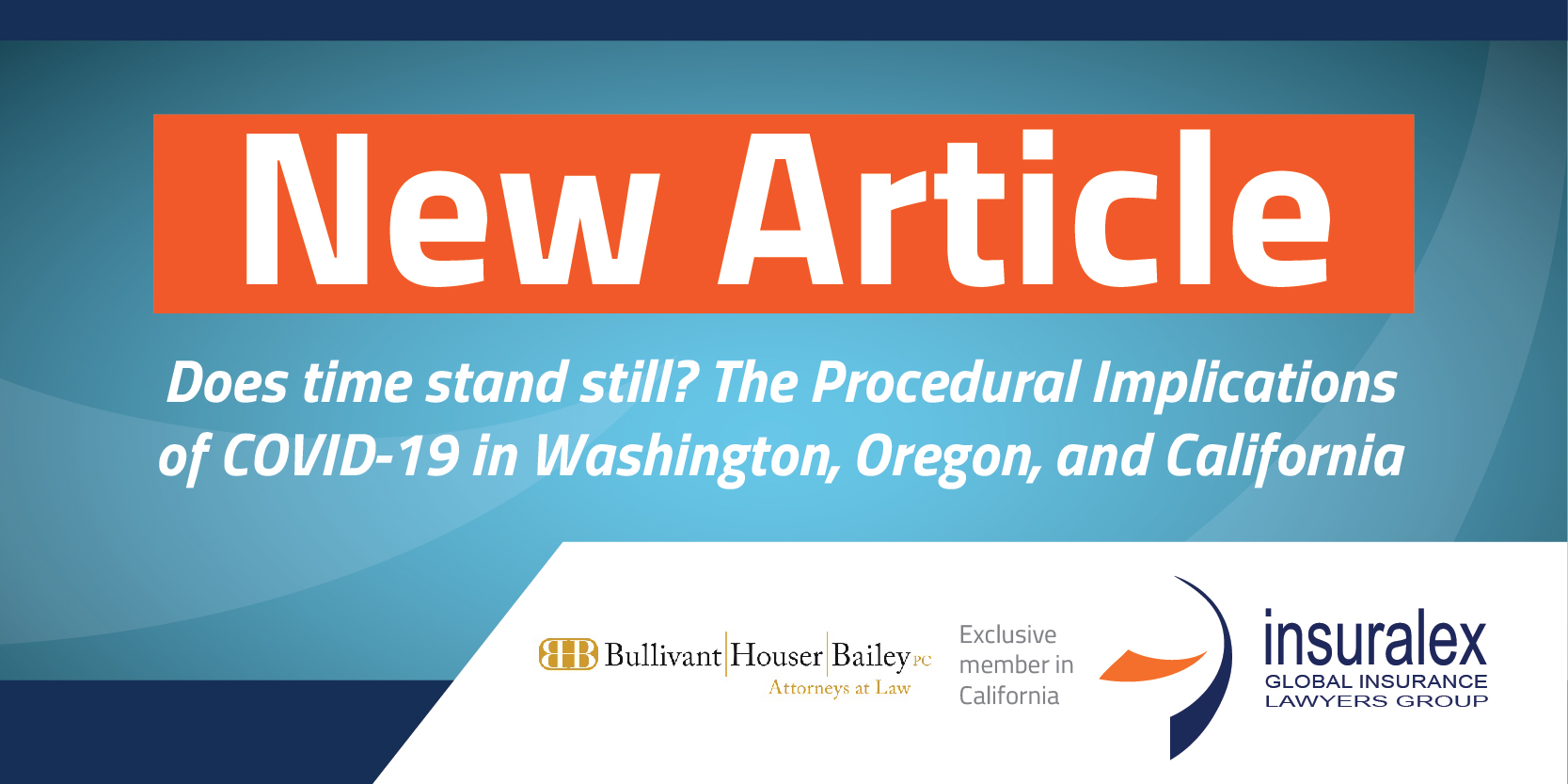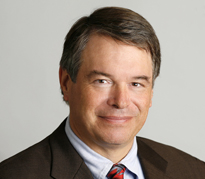
Insuralex´s exclusive member in California explains procedural implicatons of COVID-19 in Washington, Oregon and California
The Procedural Implications of COVID-19 in Washington, Oregon, and California
The judiciary tends to lag behind the rest of society when it comes to business practices. Many state courts have not yet adopted electronic filing. Personal appearances and in-person meetings with opposing counsel are still required by many courts. And in some jurisdictions, snail-mail service of documents continues to be the norm.
- King County (Seattle and immediate environs) has suspended trials through April 24. Civil motion hearings are being conducted by telephone.
- Pierce County (Tacoma) has suspended only jury trials through April 24 unless they are already in progress. The parties may instead agree to have a bench trial.
- Thurston County (Olympia) has suspended civil trials through May 15. Only time-sensitive civil motions will be heard, and those without oral argument or telephonically.
- Snohomish County (Everett, north of Seattle) has continued all civil trials to June 1. Civil motions will not have oral argument absent special request.
- Spokane County: Civil Jury trials are suspended through May 26. Bench trials are suspended through April 13. Motions will be heard telephonically, or decided on the papers without hearing.
Authors

Andrew B. Downs
San Francisco, Shareholder
Direct Dial: 0415.352.2716
Fax: 0415.352.2701
 Laura C. Caldera
Laura C. Caldera
Portland, Shareholder
Direct Dial: 503.499.4602
Fax: 0503.295.0915
E: laura.caldera@bullivant.com
Michael A. Guadagno
Seattle, Shareholder
Direct Dial:: 206.521.6433
Fax: 0206.386.5130
E: michael.guadagno@bullivant.com





